Interview by Elliott Wright
Portrait by Guillaume Lebel
Other Photos by Victor Campillo
QS has harbored a distant fascination with the Marseilles scene ever since the first Unemployed Skate Co. edits began popping up on Vimeo. Over the years, it has only grown, seemingly alongside the scene’s international profile and collection of new spots. Victor Campillo — originally from Aix-en-Provence, France — has been on a wild productive streak over the past several years and stands out as somewhat of an ambassador for the Marseille scene. We had Elliott Wright, a onetime Marseilles resident, get ahold of him to gain an understanding on why the south of France feels like its having such a moment.
Let’s start off with a little background on where you grew up.
I’m from a little city near Marseille called Aix-en-Provence. It has around 150,000 inhabitants. It’s a famous university city, usually for law studies. It’s a city of young people, but also of lots of old people too. There are lots of people from Corsica, who, when they arrive in France, end up in Aix. There is some history of the mafia being involved here, with Corsican connections.
One year after I was born, my family moved to Barcelona. My dad had a communication agency there. My mom wasn’t able to find a good job; she wasn’t a fan of Barcelona. She wanted to move back to Aix and took me and my brother with her when I was five. My parents stayed together, but my dad was basically working in Barcelona. It was cool for me, because as I got older I could go and visit him there.
When did you start skating?
I started when I was four-and-a-half, when I was still living in Barcelona. I saw many guys skating the streets, so I asked my mom for a board. When I first started, I only went to skateparks, especially Canyelles. My dad would take me, help me learn, and film me. Back in the day it was only a transition skatepark, no street. It’s been rebuilt since I was a kid. When I got a bit older, I would go to MACBA and Para-lel when I would visit my dad.
Four is pretty young to start skating; how old are you now?
Twenty-four.
When did you first start skating in Marseille?
The first time I went there to skate, I was about eleven. I had a friend, Benjamin Frayce, who was four years older than me. He was the first guy from Aix, other than my brother, who was super motivated to skate. He would take me to Marseille, and we would film and whatnot. He ended up moving to Barcelona. After he left, I started skating with this crew, Equilibre — an old crew from Aix, but also Marseilles.
When I was thirteen I met more skaters in Marseille at this flatground contest. I think it was organized by the Board Spirit Marseille, who are still making events today. I remember that was the first time I met a bunch of my friends that I still skate with today.
When I was younger, I was not as open-minded. I was shy and just skated, I wasn’t very social. I would just skate, then head home to Aix. As I grew older I realized it was more important to make friends and skate.
I got my first camera when I was like eleven or twelve, so when I started to go into Marseille with it, we would film a lot. All week I would be chilling in school. Every Friday night I would head directly to Marseille for the weekend to film with my friends. If my parents were out of town, I would invite them to come out to Aix and we would skate there. We would make edits every weekend.
Who was your first sponsor?
When I was twelve, I got sponsored by a shop in Aix. A year later, I was doing a Volcom contest series, and they started hooking me up. When I was fourteen, I got put in touch with the French Lakai team, so I skated for them for a bit. We did tours with them around France.
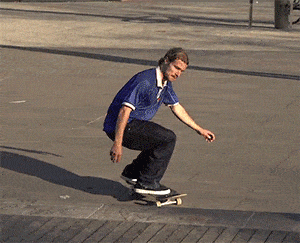
You seem very comfortable balancing on two wheels. Are there particular “manual” skaters you looked up to growing up?
I wasn’t particularly interested in manuals growing up. I got into them about four years ago. When I was living in Marseille, I was always going to La Friche Skatepark, which had a good manual pad. That year, I don’t know why, but I just started skating this manual pad a lot. It was great because I didn’t really get any injuries by only skating low-impact stuff. I learned a lot of tricks, and didn’t get fucked up. There weren’t any particular skaters that I looked up to in terms of being good at manuals.
More generally, who are some of your influences?
Vincent Touzery. When I was younger, it was CK1.
Cory?
Yeah. When we were young, we were into Beware of Sasquatch. We were fans of Sk8rat’s [Shane Aukland’s] stuff.
What about the Cliché videos?
When I was a kid, we saw those videos, but I wasn’t a big fan because I was more into the “rock” style, not the “rap” style. I was a fan of Corey Duffel. I associated skating with rock. It’s changed for me now: you can skate or listen to whatever.
What makes Marseille different to Paris, in terms of skating?
The big thing for me is the people. People in the streets, they really are more fun and open minded in Marseille. It makes them funnier. Skateboarders are an attraction; you can feel it directly when you are in the streets. Sometimes you will arrive at a spot, and see a guy who might be smoking or drinking a beer, and he’s down to watch and show support: “How do you guys do this?” They want to understand what we are doing.
In Paris, it’s the contrary. People are more stressed. If you talk to people in the streets, they aren’t going to understand why you are trying to make conversation. When I’m in Paris, I have the same attitude as in Marseille. Sometimes you feel like you are disturbing people.
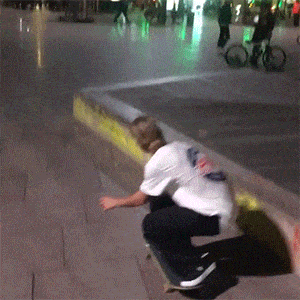
What are some ways that you think Marseille is experiencing — to use the French word — a renaissance?
Before La Friche, there weren’t any skateparks except for the famous Bowl du Prado. Skaters at that time would only skate street, at La Prefecture. Once La Friche was built, everyone just went there; street skating kind of died a little here. Eventually though, skaters got bored of the park. Also, more recently, with renovations in the city, there are way more street spots.
Let’s talk about the newest spot, La Plaine. I remember that the entire space was closed off and under construction when I was living there. What is the importance of that space?
The first thing is that it is really in the heart of Marseille. Before, it was a huge car park. Now it’s a public plaza where you can skate and chill. There are bars and restaurants surrounding the whole space. The city wanted to do this to change the environment. Before, it was usually bad people who were just hanging around the space. At night time, there were no lights, so it was definitely sketchy. Now, they have put up lights.
It’s good because all the kids who were hanging at La Friche are now starting to chill and skate at an actual street spot. They don’t want to be frustrated trying to find spots that are rough and not waxed, so La Plaine is perfect. I think it’s good for kids to not stay in the skatepark.
I think it’s good to also be in a space that’s not surrounded by only skaters. Plazas give you the opportunity to communicate with other people, you know? Grannies, dogs, interesting people. I feel happy that people can watch us and enjoy skating. I love when random people encourage you to keep doing it.
How are things going with Quotamine? Can you expand a little bit about the brand?
Quotamine was started by Luidgi Gaydu, who manages Converse and Ace here in France. He decided to start doing boards out of Paris. We are working on an edit, which is coming out shortly. We have connected with some Spanish guys as well. Luidgi took two friends of mine, Valentine Verdo and Tony, and has started sending them decks as well. It’s not super exposed; he is selling in about two or three shops at the moment.
How is Boulou [Erildo Boccacci]? He is such an icon in the scene. What is his significance in Marseille?
He’s not skating that much man; I’m sad about that. He’s chilling around. He’s the guy that doesn’t care too much about skating. He’s always got the shitty board. He needs to skate more, it’s so good when he does. You never know what he’s going to do.
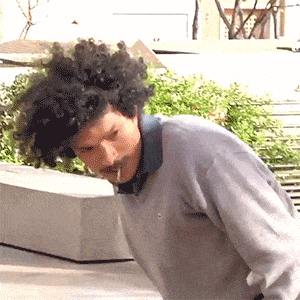
The switch heel firecracker with the spliff was so sick.
It’s so good. I didn’t know he was working towards a part. It’s kind of the first part he has ever made.
I remember you and the other locals being super helpful when I met you guys on my first visit to Marseille. I feel that is part of the Mediterranean vibe.
At the moment we are stoked to see new people come through, it’s good for the scene. here were some brands that came through last summer. We’re still welcoming for sure, even when things get busier.
Especially with a spot as good as La Plaine opening up, do you feel like the scene will continue to be welcoming to tourists?
Yeah man, at the moment it’s good. If it becomes something like Barcelona, I think we might become haters. If I got to La Plaine one day and it was as busy as MACBA, I would be bummed. That’s too much man, you can’t even skate.


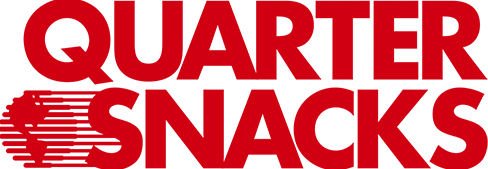
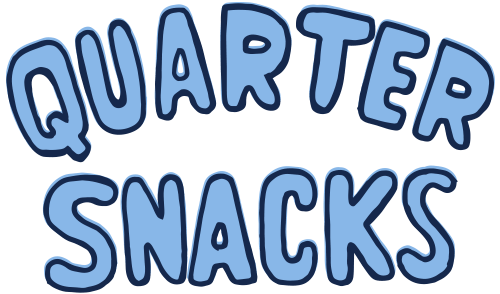
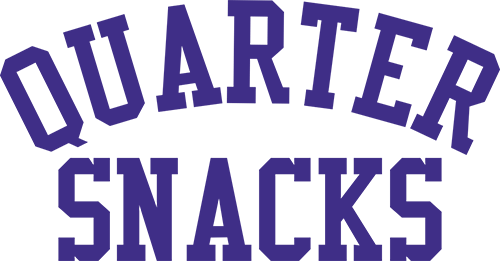

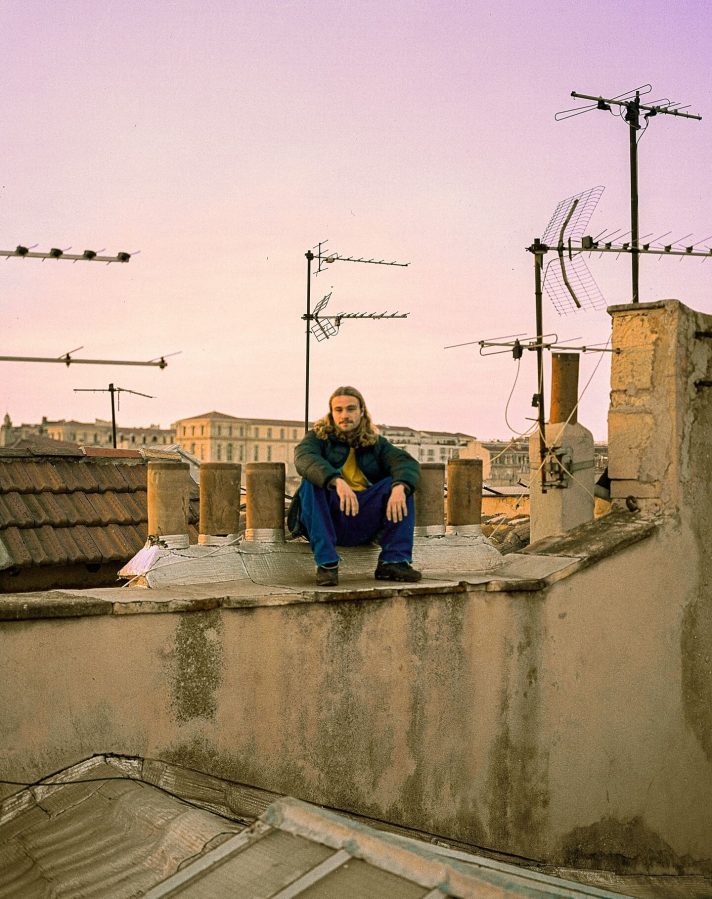
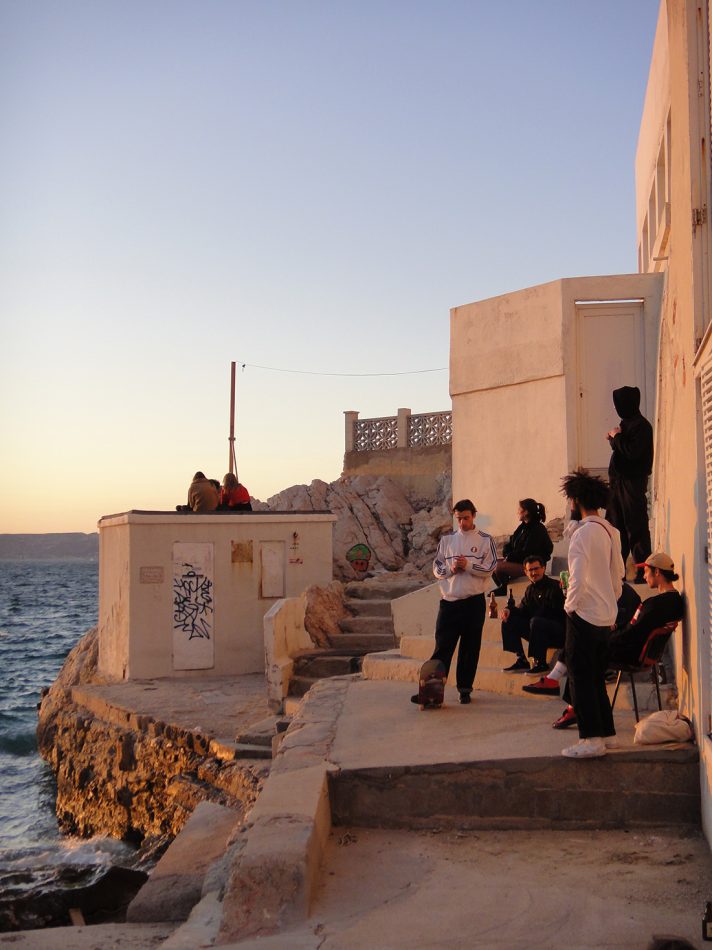
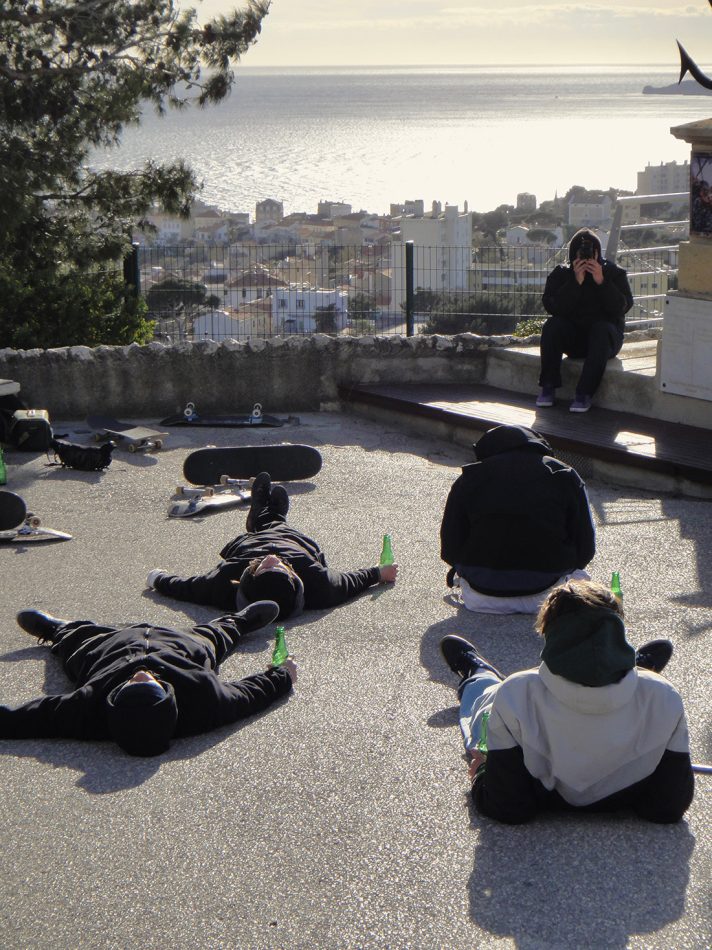
Le roi de Mars
Me souviens de lui a une session à Lyon Charpennes. Super sympa et encourageant, comme il a l’air d’être en interview:)